The Checker Maven
The World's Most Widely Read Checkers and Draughts Publication
Bob Newell, Editor-in-Chief
Published every Saturday morning in Honolulu, Hawai`i
Noticing missing images? An explanation is here.
Famous Shots I

At this point in our Checker School series, we're going to present a series of quizzes on famous shots in the game of checkers. We'll show you a diagram of the shot position, and ask you to "name that shot" as well as solve it.
This month we'll start out with a shot that an experienced player will recognize at once, and with which a newer player should become familiar. The run-up is as follows.
11-16 23-18 16-20 24-19 8-11?
Black's last move looks so natural, but it loses; 10-14 or 7-11 would have been fine. Can you demonstrate the White win and give the shot's well-known name?
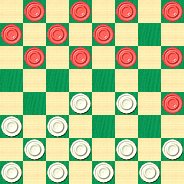
WHITE
White to Play and Win
W:W32,31,30,29,28,27,26,25,22,21,19,18:B20,12,11,10,9,7,6,5,4,3,2,1.
Take your best shot and then shoot your mouse over to Read More to see the solution.![]()
You can email the Webmaster with your comments on this article.
Haste Makes Waste
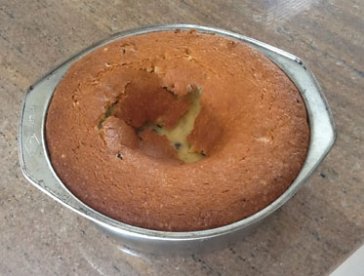
Take a look at the cake above; the famous old adage "haste makes waste" is as true now as it ever was. How many times have we rushed to finish something, only to have to do it over? It calls to mind a common question in the business world, "You don't have time to do it right, but you have time to do it over?"
Today's featured problem, composed by our old friend Ben Boland, when originally published carried the admonition "You will solve it if you are not hasty." So, we encourage you to take your time and enjoy the process of finding the solution. Pour yourself a cup of coffee and try to work it out from the diagram.
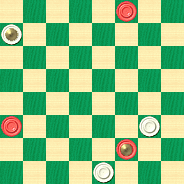
WHITE
White to Play and Draw
W:WK5,24,31:B3,21,K27.
When you've found the answer, probably right about when you've finished your cup of coffee, click on Read More to see the solution. Then reward yourself, perhaps with a slice of cake and a second cup of coffee.![]()
You can email the Webmaster with your comments on this article.
The Checker Murders: Part Five

The Checker Murders is a 16,000 word novelette published in seven monthly installments. It is perhaps the most extensive work of checker fiction ever published. We hope you enjoy it, but if you wish you can skip to the end to see this week's checker problem. Be forewarned that the problems in this series are for the most part very difficult.

Over steak and baked potato dinners in the dimly-light restaurant, Mortimer told Sheila all about his research and how his theory had been confirmed by the latest murder.
"It's pretty predictable," he told her. "I haven't completely figured out the checkerboard part yet, but I'm working on that and I'm sure it will fit somehow with the rest of my ideas. "This next one--- I mean, when the murderer strikes again--- was a little harder to figure because there were a few possibilities, but it should be at 1115 Montrose Street, Evans, Colorado."
"What makes you think so?"
"Look at the numbers and street names. They match up with checker opening names. And the method of murder--- that corresponds to the name of a variation of the checker opening."
"That's crazy. But if you're right..."
Sheila's phone rang.
"Sheila Larkspur." She listened for a few moments. "OK, yes. I'll come."
Her look had changed to one of dead seriousness. Dessert was forgotten. "Mortimer. There's been another murder. Exactly where you predicted. I'm going to the crime scene, and I think you better come with me. There are going to be questions and you need to be on hand. You can drive me there. Right now."
Needless to say, Mortimer had never been at the scene of a murder before. In his fantasy life, he had dreamed of coming on to the scene and dazzling everyone with his brilliant analysis, bringing the criminal swiftly to justice.
Reality was a lot different, and a lot less attractive. In fact, Mortimer found it more than a little frightening.

Police were everywhere, yellow tape cordoning off the scene of the crime.
Special Agent Purdy was already on site when Mortimer and Sheila arrived and got out of Mortimer's car. Purdy, standing outside the house, saw Sheila and went over to her.
"What's he doing here?" Purdy asked, jerking his thumb at Mortimer.
"Give us a minute, will you?" Sheila said to Mortimer. When he nodded his head but didn't move, Sheila added, "Mortimer, that means I want to speak privately with the Special Agent. Can you please go wait by your car?"
Mortimer looked a little dejected but did as he was asked. He watched while Sheila and Purdy talked for what seemed like quite a little while, but was probably just a few minutes. Toward the end of their discussion, Mortimer noticed Purdy looking repeatedly in his direction.
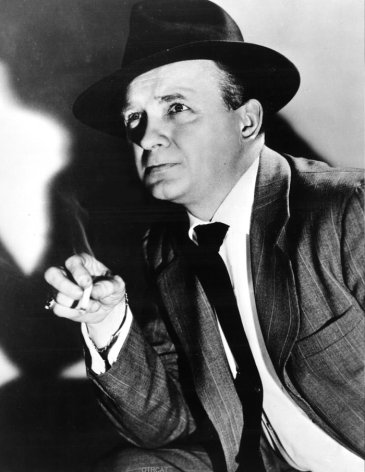
"All right, Sherlock, either you explain how you knew about this," Purdy growled, "or I'm taking you in."
"Special Agent! That really isn't necessary! You're getting me very upset!" Sheila objected.
Purdy hesitated a moment. "You going to cooperate?" he said to Mortimer.
"Uh, yes, sir," Mortimer said in a frightened squeak.
"All right, but it's only because of her that I don't haul you right off," Purdy said. "I don't wanna upset the young lady too much. But you got a lot of questions to answer. For instance, where were you...."
"Special Agent," Sheila cut in, "obviously he was with me. How else could he have driven me here?"
Purdy seemed to ponder this. "Yeah, I guess you got a pretty good alibi from the little lady here." When he saw Sheila glare he added, "Oh, I don't mean nothin'--- whaddaya callit--- sexist."
Purdy turned back to Mortimer. "All right then, but how did you know where the next murder would take place? You might be some sort of smart kid, but nobody could know that unless they know the killer too. So who done it? You better come clean with me..."
Mortimer said in a weak voice, "Uh ... could you please tell me the method of murder, Agent Purdy? It makes a difference ..."
Purdy grunted but grudgingly gave a brief rundown on the current crime. The victim, a young waitress, had been beaten to death in her living room. The murder weapon, found next to the body, was a heavy iron cross that had been reported stolen a week ago by a local church. There was the usual checkerboard, set up on the living room's coffee table.
"Your turn now, college boy," Purdy said.
Sheila glared again. "Tell him your theory, Mortimer."
Mortimer went through his ideas. Purdy's expression very quickly glazed over. When Mortimer was done, Sheila said to Purdy, "It's brilliant, isn't it?"
"Well, I don't understand none of it," Purdy said. "And it don't tell me nothing about who the killer is."
"Yes it does!" Mortimer piped up. "I mean, well, sort of."
"What's that supposed to mean, 'sort of'?" Purdy asked, obviously impatient and annoyed.
"The murderer is a checker expert or at least someone who knows a lot about checkers," Mortimer said.
"Oh, that helps a lot, don't it," Purdy said. "There's what, five million people in the Denver area and only about, say, five million of them know how to play checkers. Yeah, that narrows it down for me. Great job."
"No, no, it's someone who knows a lot about checkers. Really a lot; I have to finish my analysis but I'm sure it has to be someone who is a high level player, and there aren't a lot of them around."
"Can you give me names?"
"Maybe... after I do some more checking. But I can tell you for sure where the killer will strike again."
"He's been killing one every night."
"I know. But I think you can catch him tomorrow night."
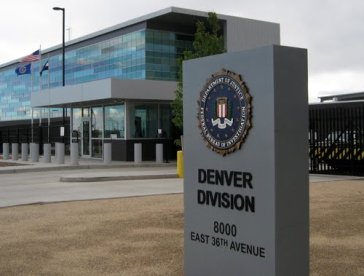
They did all eventually wind up at FBI headquarters, although Purdy and Sheila would have gone there anyway, and Mortimer was happy enough to stay with Sheila. When they got there Mortimer repeated his ideas, not just to Purdy but to the whole team working on the case. Sheila sat near him and smiled at him from time to time, evidently very pleased with her new friend.
Most of the team seemed as lost as Special Agent Purdy, but Mortimer could see that at least a couple of them caught on. When Mortimer gave his prediction as to where the next murder would be--- 1116 Glasgow Circle, Aurora, Colorado--- the ones who got it nodded agreement. "You were right about the one tonight," Purdy told him, "so I guess we gotta listen about this one. We'll set up some kinda stakeout and try and catch this guy."
He got up as if to end the meeting and leave, but then added, "And don't you get any ideas, Sherlock. You're staying right here and doing nothing except keep quiet. I don't want you saying nothing to the press and you ain't going on the stakeout, so don't even ask. In fact don't even think about asking."
Purdy left the room and the others started to trickle out. Two of the team members did come over to introduce themselves and shake Mortimer's hand.
After everyone had left and Mortimer was still sitting at the front of the room, Sheila came over to him and put her arms around his neck. "Very well done," she whispered in his ear. "I'm proud of you, I really am." She squeezed his shoulders with both hands. "But it's getting late. I'll be here all night again. You better drive home. You have class tomorrow, don't you?"
Mortimer, now more dazed than ever, simply nodded.
"I do too, and I won't have any sleep, so I'll have to just go straight through and sleep later. That means I won't see you tomorrow."
"Can't we just meet at dinner, then we can ... I mean you can go to bed."
Sheila laughed at his little slip. "Naughty boy," she said in a teasing tone. "Getting a little ahead of ourselves, aren't we?" But she said it with such a smile that Mortimer wasn't embarrassed. In fact, it took him several moments to figure out just what he had said that was so amusing. When he finally did, he turned all red.
"Oh... oh no, I didn't mean...."
"You know, Mortimer, the nice thing about you is that you really didn't."
WHITE
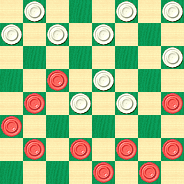
BLACK
Black to Play, What Result?
B:W32,30,29,28,27,26,21,18,15,14:B19,16,13,12,8,7,6,5,2,1.
Again as is typical in this series, the problem is world-class tough unless you've seen the position before. Definitely try it out but don't be afraid to click on Read More to see the solution and discussion.![]()
You can email the Webmaster with your comments on this article.
Little Strokes Fell Big Oaks
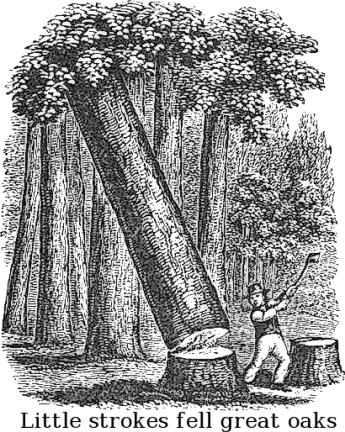
"Little strokes fell big oaks" is a common adage with the obvious meaning that a big effort can be tackled with many little steps, all of which add up to get the job done.
Today's stroke problem is a major effort solved one move at a time. In this case, little strokes add up to a big stroke.
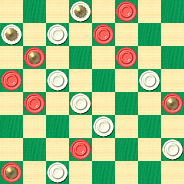
WHITE
White to Play and Win
W:WK2,K5,6,14,16,18,23,28,30:B3,7,K9,11,13,17,K20,26,K29.
You'll need to keep your mental "eye" wide open to visualize the solution, but it can be done just as our theme suggests: picture it in your mind one move at a time. When you've finished, click on Read More to see the solution.![]()
You can email the Webmaster with your comments on this article.
Mr. Hefter
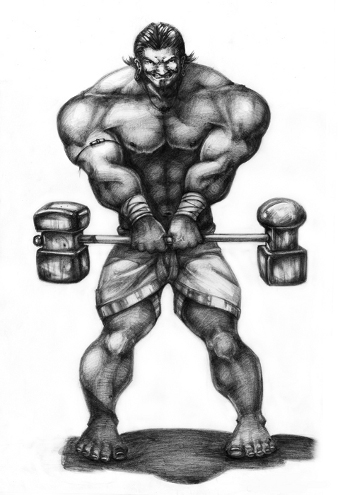
While we're not at all sure that old-time checkerist Mr. Charles Hefter was an eponymous weight lifter, we do know that he was a famed and skilled player, analyst, and problemist. His specialty seemed to be in making corrections to published play and problems. One such example is shown in the diagram below.
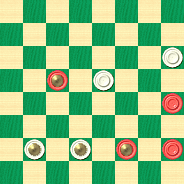
BLACK
Black to Play and Win
B:W21,18,K8,K7:BK19,13,K6,5.
This is not an especially weighty problem, though it has some interesting twists. Can you lift yourself up and find the answer? Don't let the challenge press you; curl up and find the solution. When you're ready, raise your mouse over Read More to see winning way.![]()
You can email the Webmaster with your comments on this article.
The Checker Murders: Part Four

The Checker Murders is a 16,000 word novelette published in seven monthly installments. It is perhaps the most extensive work of checker fiction ever published. We hope you enjoy it, but if you wish you can skip to the end to see this week's checker problem. Be forewarned that the problems in this series are for the most part very difficult.
It was a good thing that Mortimer also had classes the next morning, and even better that Mortimer wouldn't skip class no matter what. Otherwise, he probably would have lain in bed all morning with the memory of Sheila's hug. It was just a casual thing, but still, it had set Mortimer on fire and he remained in a dazzled, dreamy state all through the morning. It must be said that even though he did make it to all of his classes, he was somewhat less attentive than usual. One of his professors even remarked on it, saying in so many words that it looked like he was in love or something. It embarrassed Mortimer no end and turned his face beet red.
But classes ended, and just as he did on the previous day, Mortimer rushed to the bus and braved the weirdos with as much patience as he could muster. That was precious little, but it at least could be said that he tried.
He ran up Perry Street as quickly as he could and into his little rented house. It was about 12:30 and sure enough, there was an email from Sheila. He read it eagerly.
"Here are the pictures you wanted of the checkerboards from the second and third murders. I set up a meeting with Special Agent Purdy for four o'clock this afternoon. Just go to the FBI office and ask for him. You'll be directed to the meeting room. I'll join you there. Please don't be late and by all means don't miss the meeting. I think I can get you on the case if you make a good showing."
The checkerboard photos were attached to the email. Mortimer took a quick look. What he saw was about what he expected. Yes, he was definitely on to something.

Mortimer didn't know the neighborhood around the FBI office very well; it was in the Stapleton area, a place he didn't go often, so he left early even by his standards. As it turned out, it was a good thing; traffic was terrible and he made it to the office complex with just five minutes to spare.
Despite Mortimer's interest in solving interesting crimes, going into the FBI office was something that he found more than a little intimidating. He went to the big front desk and looked up at the security officer on duty.
He had a little trouble finding his voice, but managed to say, "Mortimer Holmes, I'm here to see Special Agent Purdy."
The burly guard gave him what can only be called a disdainful look. "Is that right, kid," he said in a deep, gravelly voice. "And just why would a busy man like Special Agent Purdy want to see the likes of you?"
Mortimer watched movies sometimes, so he thought that Federal officers were supposed to be polite, but he wisely refrained from stating this aloud.
"I'm meeting with him about the checker murders." Mortimer tried to say it with some semblance of confidence.
"Oh yeah, kid, now tell me, you've got it all figured out and you're going to tell the Special Agent how to solve the case, am I right?"
"Well, yes, you see I have a theory.."
"Beat it, punk, before I lock you up."
"No, no, I really have a meeting with Special Agent Purdy. Sheila ... I mean, Ms. Larkspur, in the Crime Lab, she set it up for me... she said to come here at four o'clock."
The officer still looked skeptical, but he picked up the phone and dialed a number. "Sheila?" His voice had changed to a tone that he probably thought was sweet. "Did you set up a meeting between Special Agent Purdy and some skinny kid?"
The officer paused. His facial expression changed at once. "Oh, you did, I see, it's all on the level. I thought .... no, no, there's no problem, I'll send him right up ... yes, yes, I won't keep the Special Agent waiting any longer."
The growling voice returned as the officer said to Mortimer. "You're lucky, kid." He pointed a thumb at a bank of elevators in the back of the entry hall. "Third floor, room 310, and be quick about it, Special Agent Purdy's getting impatient waiting for you to show up."
Mortimer didn't need to be told twice. He grabbed the visitor's badge grudgingly proffered by the officer and tore across the floor to the elevator, narrowly missing a collision with a pair of men in suits.
"In a hurry, kid?" one of them said, obviously annoyed.
Mortimer tried to look invisible, though without much success. He stood meekly in the back of the elevator and simply waited until he reached the third floor.
It was a typical government office. The floors and walls were a kind of sterile looking off-white, and the lighting came from harsh and overly bright overhead fluorescent panels.
At least he didn't have any trouble finding room 310.
There was no window in the door to room 310, not even a tiny peephole, so Mortimer had to go in cold. He pushed open the door just a crack and squeezed his way through. A bellowing voice greeted him.
"Whassamatter, door too heavy for you?"
Standing on the right side of the long, narrow room was a stocky man in a rumpled suit.

Mortimer shuddered involuntarily, drawing yet another scornful look from the man, who could only be Special Agent Purdy. Were all male cops like this? Mortimer wondered.
On the left side, toward the back, Sheila sat in one of the plastic chairs that surrounded a big composite table which dominated the room and left little space for walking. Sheila was keeping a studious silence, barely nodding at Mortimer as he came in. She must be intimidated by Purdy as well. But she looked great in her lab coat and her brown hair in its usual ponytail. Mortimer was amazed that he noticed, given the reception he was getting.
"Now, I been waiting long enough, so sit in that chair--- no, that one, the one I pointed to--- and tell me what you got. I'm only talking to you cause of Sheila." He stopped to throw what he thought passed for a smile in her direction. "Her, I trust. You, I don't know nothing about, and from the looks of you I don't think I wanna, either."
Mortimer quickly sat down in the indicated chair. "Did Sheila tell you about my ideas?" he asked quickly.
"Never mind about what Sheila told me or didn't tell me," Purdy snapped. "Let's hear it from you. And quick, cause I got better things to do than hang around here.
Mortimer started to explain his idea that the arrangement of the checker boards must have something to do with the crimes. Purdy did little more than grunt while Mortimer was talking. After a couple of minutes, Purdy's cell phone rang loudly, interrupting Mortimer's recital.
"Purdy. Yeah, I'm in 310 with... really? No kidding... that doesn't sound good. I'm on my way."
He closed the phone and turned to Sheila. "There's been another checkers murder. I gotta run. Give this kid whatever he wants. I worked with worse nuts before, maybe he'll actually come up with something."
"You mean ... I'm on the case?" Mortimer said in an incredulous tone just as Purdy was about to open the door to the hallway.
"Yeah, Sherlock, sure, you're on the case, whatever." With that Purdy hurried through the door. It closed slowly behind him.
"Wow," said Mortimer, sitting with what had to be a goofy grin on his face. He looked over at Sheila, and somewhat to his surprise, she was beaming at him.
"I told Special Agent Purdy you might have something to offer," she said in a calm voice that didn't hide its warmth. "I was right, wasn't I?"
"Uh, yeah," was all Mortimer could say.
"Now, let's go down to the Lab," Sheila said. I'll get you the addresses that you asked for. You're officially on the case, so I can do that."
"Hey, he even called me Sherlock."
Sheila gave him a little of a pitying look--- not very much, but a little. "Yes, well, Mortimer, I wouldn't carry that one too far. Let's just go look at the evidence, shall we?"
Mortimer spent an hour in the Crime Lab with Sheila, taking careful notes.
"Hmm, 914 Double D Road, Fountain, Colorado. 1014 Denny Court, Montrose, Colorado. It's all making sense in its own way, except that last one could have gone two different ways..."
"What are you getting at, Mortimer?"
"Uh... let me study this just a little more first..."
Sheila hesitated a moment before saying, "Look, Mortimer, if there's been another murder evidence will be coming in tonight and I'll have to stay here until it does. It's going to be a long night for me."
"You mean you can't go to dinner?" Mortimer just blurted the words out, amazing himself in the process, not knowing he would have the courage to ask her out again.
"Oh, Mortimer, I can't." Seeing the look on his face, she put a hand on his forearm. He seemed to relax almost at once. "Don't be hurt; I just can't get away when there's something important going on. Hey, I'm off tomorrow, why don't you call me in the afternoon--- not too early, because I'll probably be up all night working--- but maybe, after three? Then we can get together and I can bring you up to date. Will that work, Sherlock?"
Now Mortimer was all smiles. "Sure thing," he said.
"OK, now home with you," Sheila said, releasing his arm and giving him a quick kiss on his cheek.
That evening Mortimer didn't even pay any attention to the rude drivers on I-25. He floated on cloud nine all the way back to Perry Street.
The crime was all over the late news that evening and again on the morning shows. Mortimer soaked up every detail he could, even knowing that he'd get more information from Sheila later on.
A computer executive who lived in Boulder had had his skull cracked open with a heavy object. The usual checkerboard had been found at the scene. Mortimer couldn't figure out the board arrangement from the brief few frames the television news provided, but fortunately there was a legible photo in the morning newspaper. The address of the crime scene wasn't mentioned, but Mortimer did a little checking on the internet maps, and in a few minutes was certain he had deduced the address. A check with phone directories verified this; the address of the murdered man was an exact match with Mortimer's supposition: 1015 Kelso Road.

A little more research, and he was just about certain where the next murder would take place, for his theory also predicted that the killer would strike again.
He couldn't wait to tell Sheila. For the third day in a row, the hours passed slowly as he waited for three o'clock to come. Then he realized that Sheila had never given him her phone number.
His worst fears were realized when, as he expected, she didn't have a listed phone number. Hardly anyone under the age of about fifty had a land line any more, he thought. Everyone just had a cell phone.
Well, he knew how to get her number. The way he could do that was most definitely not on the level, and probably downright illegal. But what she doesn't know won't hurt her, he thought; anyhow, this was police business, wasn't it? He was officially on the case. That ought to give him some license.
He wasn't quite sure if he believed his own argument, but neither would he put too fine a point on it. So he went ahead and did a little creative hacking, being careful as always to use anonymous proxies and other tactics to conceal his identity and location. It only took him a few minutes to come up with Sheila's number, and by then it was three o'clock, or at least close enough not to make much of a difference.
A sleepy voice answered his call. "Hello?" It was defintely her, and picturing her in pajamas just waking up was almost more than Mortimer could handle.
"Hi, Sheila?"
"Oh, Mortimer, you know, I realized that I hadn't given you my phone number .. hey how did .... never mind, I probably don't want to know."
Mortimer could just about hear her smiling as she said it.
"Listen, it was a long night," she continued, "and I'm just waking up. But I can be at Broken Book by five if you want to meet me there again."
Mortimer would have rather gone somewhere else, but he wasn't about to argue.
"Sure," he said, "Broken Book it is, and when we get there I'll tell you where the next murder is going to take place. See you soon!"
Mortimer hung up before Sheila could ask any questions. He grinned. He'd sure gotten her attention now!
He drove his car again, more than willing to splurge on parking in return for the chance to keep his options open for later in the evening. Maybe he could talk her into going for a real dinner instead of just another sandwich.
To his surprise, Sheila was already there when he arrived, even though he was fifteen minutes early. And she didn't look very happy.
He sat across from her at the table she had taken up at the back of Broken Book. "Hi.., I didn't expect to see you so soon.."
"Mortimer." The single word cut him off at once. "You don't tell someone in law enforcement that you know the site of a potential murder and then hang up."
"But.."
"No, listen. This is serious. If I didn't like you I would have had a Special Agent bring you in for questioning. I know you don't know any better, and I know you were trying to make an impression, but don't ever do something like that again."
Mortimer sat in stunned silence. He thought he had been so clever. Women were just too hard to understand. But even he knew that an apology was in order. He offered one in a bit of a choking voice.
"Oh, Mortimer," Sheila said. "Don't take it so hard. I was just trying to keep you from getting into trouble. You're such a sweet guy in your own oblivious way... I think that's what I really like about you. There's no pretense. You really don't know any better sometimes."

She took his hand and didn't let it go. "Tell you what," she said. "Let's go someplace nicer than this. You have your car, right? Let's go to Plateau de Boeuf. I'm really hungry after last night and it's my treat. Let's have a nice splurge tonight, and you can tell me all about where you think the murderer might strike next."
"I really do know. In fact you don't need to give me the address of the scene of the last murder." Mortimer proceeded to recite the address he had researched, 1015 Kelso Road.
Sheila's eyes opened wide. "That's right!" she exclaimed. "How in the world... oh, wait a minute ... the victim's name was in the media, I bet, and you just checked some directories ..."
Mortimer looked unhappy, but he noticed Sheila was still holding his hand. "Sheila, the guy's name was Tony Garcia. There are a million Tony Garcias in the Denver area."
"You're right," she whispered, squeezing his hand even tighter, her expression changing to one of clear admiration. "You've earned the dinner I just promised. Let's go!"
BLACK
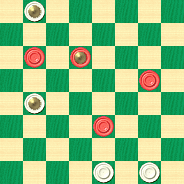
WHITE
White to Play and Win
W:WK1,K17,31,32:B9,K10,16,23.
While hardly easy, this problem may be slightly less difficult than the others in this series. Match wits with M. Sherlock Holmes and try to solve it, then click on Read More for the solution, notes, and full game.![]()
You can email the Webmaster with your comments on this article.
A Fast Fall
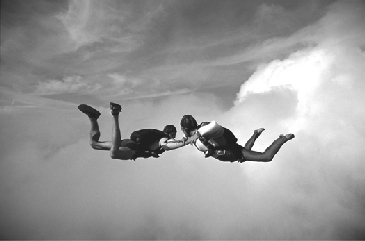
Summer disappears and fall comes on fast in much of the northern hemisphere. Fall in turn will go by and then it will be winter.
But enough of such thoughts. Enjoy the fall season, and enjoy this month's speed problem, too. It certainly isn't hard, but it provides just enough of a visualization challenge to be interesting ... for the fifteen seconds we're allowing on our merciless Javascript clock.
September Speed Problem (medium-easy, 15 seconds)
When you're done, come back here and click on Read More to check your solution.![]()
You can email the Webmaster with your comments on this article.
Beginner's Corner: You Have to Actually Win It
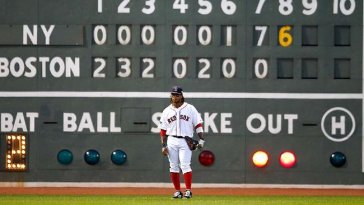
Check the scoreboard above. It looks like Boston has blown a really big lead and will lose a game that should have easily been a win.
Something like this also happens in checkers. It's been said about such games of pure skill that for the less experienced player winning a "won" game can be one of the toughest chores. How many times have we held a decisive advantage and let the win get away from us? We're certain every checker player alive has had this frustrating experience.
In the diagram below, White by rights ought to win the game. He's a man up, though his position is a little cramped. But it shouldn't be all that hard ... should it?
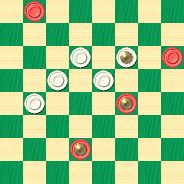
WHITE
White to Play and Win
W:W17,15,14,K11,10:BK26,K19,12,1.
Can you win this won game, or will you have one hard time with it? There just might be a little more to it than it may seem. When you've found the solution, click on Read More to verify the win that you won.![]()
You can email the Webmaster with your comments on this article.
Back to School 2013

It's definitely the "back to school" season. And although school has already started here in Hawai`i--- public school reconvened at the early date of August 5--- the back to school rush is in progress or soon forthcoming at many locations around America.
To celebrate back to school (yes, some people do actually celebrate it) we present a small "scholarly" problem. It's simpler in appearance than those in our Checker School series, but it's definitely in the "need to know" category for all cross-board players. You'll probably recognize it, but can you solve it from the diagram?
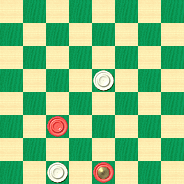
WHITE
White to Play and Draw
W:W15,30:B22,K31.
Give this "the old school try," and then click on Read More to see the solution.![]()
You can email the Webmaster with your comments on this article.
The Winner Is: The Computer
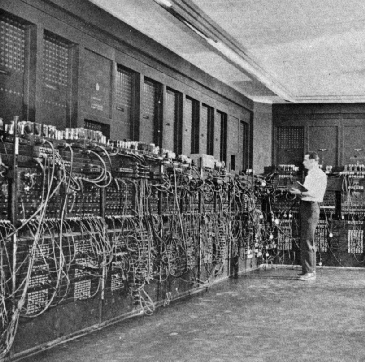
We've often praised the checker analysts of yore; they had only raw skill and brainpower available to them. There were no supercomputers or 10-piece databases to aid them, yet they still got an amazing amount right.
But the computer, far from "spoiling" the game of checkers, has shown us some deep and subtle things about our game. At times, the old analysts stand corrected when the computer finds something completely unexpected.
We don't think those old analysts would at all mind being overruled. Their quest was for the truth and we think they'd be happy to see that goal served.
Today we have a game that was played something like 75 years ago. The original published analysis makes a lot of sense when you read it; it's practical and more than a little compelling. But the computer has a lot to say, as we'll see in the run-up below.
| 1. | 11-15 | 22-17 |
| 2. | 15-18 | 23x14 |
| 3. | 9x18 | 17-14 |
| 4. | 10x17 | 21x14 |
| 5. | 8-11 | 26-23 |
| 6. | 4-8 | 24-20 |
| 7. | 11-15 | 28-24 |
| 8. | 6-10 | ... |
Once considered weak but actually quite acceptable.
| 8. | ... | 31-26 |
The original analysis claims that 25-21 should win for White, but it really doesn't.
| 9. | 10x17 | 23x14 |
| 10. | 17-21 | 25-22 |
| 11. | 1-6 | 29-25 |
The shot with 30-25 loses after 30-25 21-30 22-17 30-23 27-4 6-9 and Black should win. Here White would hold the draw most easily with 22-17. The actual move played, 29-25, was originally declared to be a loser. Deep computer analysis shows that White gets a slim draw.
| 12. | 15-18 | 22x15 |
| 13. | 7-10 | 14x7 |
| 14. | 3x28 |
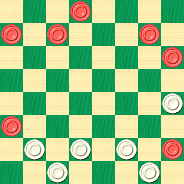
WHITE
White to Play and Draw
W:W32,30,27,26,25,20:B28,21,12,8,6,5,2.
White is a man down! What's the catch? Why shouldn't this be a straighforward man-down loss?
But note that Black's man on 28 is in the dog hole. That's never a good sign. White does have a draw, though the original analysts, lacking computers, didn't see it. Can you?
This is a very hard problem indeed, but the solution is quite rewarding and useful in over-the-board practice. Do give it a try, even if you need to turn to your computer or our own computer solution, which you can access by clicking on Read More.![]()
You can email the Webmaster with your comments on this article.
The Checker Maven is produced at editorial offices in Honolulu, Hawai`i, as a completely non-commercial public service from which no income is obtained or sought. Original material is Copyright © 2004-2026 Avi Gobbler Publishing. Other material is public domain, AI generated, as attributed, or licensed under CC1, CC2, CC3 or CC4 and the various CC options. Information presented on this site is offered as-is, at no cost, and bears no express or implied warranty as to accuracy or usability. You agree that you use such information entirely at your own risk. No liabilities of any kind under any legal theory whatsoever are accepted. The Checker Maven is dedicated to the memory of Mr. Bob Newell, Sr.


